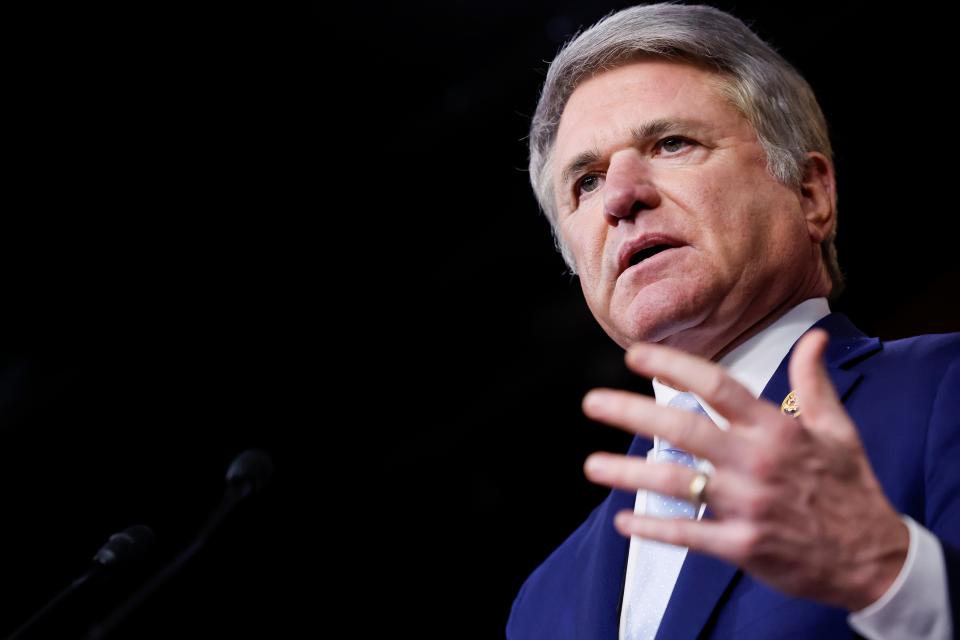House Foreign Affairs chief: Donald Trump brings ‘unpredictability factor’ to diplomacy
- Oops!Something went wrong.Please try again later.
- Oops!Something went wrong.Please try again later.
- Oops!Something went wrong.Please try again later.
- Oops!Something went wrong.Please try again later.
WASHINGTON – House Foreign Affairs Chair Mike McCaul, R-Texas, on Friday described a game plan for protecting the United States’ foreign alliances if former President Donald Trump wins in November.
“We go back to our old playbook from the prior administration… bring in people like myself or (South Carolina GOP Sen.) Lindsey Graham,” he told reporters during a breakfast hosted by the Christian Science Monitor, adding that it’s important to have his ear to make sure he doesn’t go rogue.
Last weekend, Trump spooked international allies when he said at a campaign rally that he would “encourage” Russia to "to do whatever the hell they want” if allies in the North American Treaty Organization didn’t pay enough for collective defense capabilities. It drew immediate blowback from foreign leaders, members of Congress from both parties, and President Joe Biden, who said the comments were “un-American” and “dangerous," though many Republicans defended the spending concerns and Trump advisors have argued he didn't really mean it.
McCaul is a defense hawk who regularly makes the case for America’s continued involvement on the world stage, as opposed to the increasingly isolationist wing of his party that is often exemplified by Trump.
But he argued that the former president’s shoot-from-the-hip style isn’t necessarily a bad thing: NATO Secretary General Jens Stoltenberg said it is a “valid point” that more countries need to pay in to the defense fund and that more than half of the member countries are expected to meet that goal this year.
“There’s a fear factor and there’s an unpredictability factor with Trump,” McCaul said. “You don’t know what he’s going to do.”

Donald Trump lobbying Congress on Ukraine aid
The United States’ involvement in international affairs is under a microscope as Russian President Vladimir Putin continues to wage war in Ukraine and as Congress considers sending additional aid to the country.
The likely Republican nominee for president holds immense sway over the Republican Party amid the debate, and he is actively getting involved in influencing the policy.
Trump has publicly opposed additional Ukraine funding and recently suggested that the aid should only be approved as a loan, rather than direct cash – though much of the funding designated for Ukraine in the foreign aid package would actually go to U.S. government contractors rather than sent overseas.
The ripple effects have been clear: A large portion of the Republican conference also opposes additional aid for Ukraine. House Speaker Mike Johnson has said his chamber will not vote on the Senate-passed aid package without border provisions. Democrats and a number of moderate members are exploring potential work-arounds to speed up aid that Ukraine says is desperately needed, and fast.
McCaul – a vocal advocate for additional aid for Ukraine – said he has discussed changes to the package with Johnson, including adding a provision that would seize Russian assets frozen in Western banks and by making the aid a loan, as Trump has suggested.
Whether that will be enough to sway Trump, McCaul said, “goes back to: who’s in his ear?”
This article originally appeared on USA TODAY: GOP foreign affairs chief: Trump brings 'fear factor' to diplomacy

